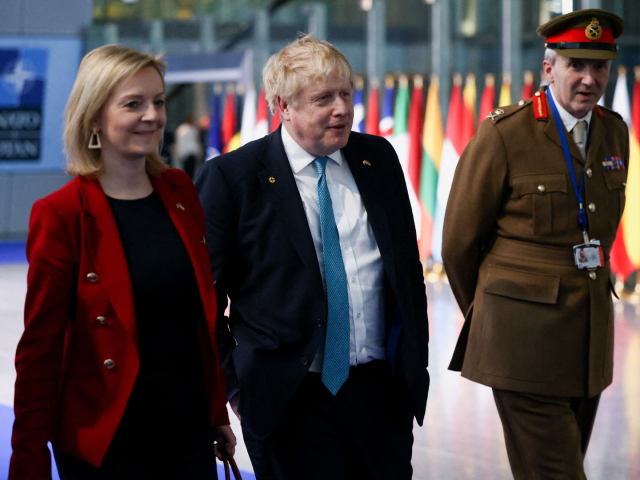The United Kingdom should begin supplying weapons to Taiwan in order to bolster the island nation’s defence should Communist China follow in Russia’s footsteps and launch an invasion, Britain’s foreign secretary has argued.
On the heels of the G7 meeting in Bavaria, Germany and with the NATO meeting in Madrid, Spain, British Foreign Secretary Liz Truss has said that the UK should send “defensive weapons” to Taiwan as it has already done with Ukraine.
“There’s always a tendency – and we’ve seen this prior to the Ukraine war – there’s always a tendency of wishful thinking, to hope that more bad things won’t happen and to wait until it’s too late,” Truss told the Commons foreign affairs committee on Tuesday according to The Guardian.
“We should have done things earlier, we should have been supplying the defensive weapons into Ukraine earlier. We need to learn that lesson for Taiwan. Every piece of equipment we have sent takes months of training, so the sooner we do it, the better,” she added.
Truss, who joined Prime Minister Boris Johnson in Madrid, told a panel session of the NATO Public Forum on Wednesday that in light of Communist China expanding its influence through “economic coercion and building a capable military” there is a risk that Beijing could make a “catastrophic miscalculation such as invading Taiwan.”
“That is exactly what we saw in the case of Ukraine, a strategic miscalculation by Putin, so this is why it’s so important that the free world work together to help ensure that Taiwan is able to defend itself and to stress the importance of peace and stability across the Taiwan Strait,” Truss told the NATO conference.
China has consistently threatened to invade the island nation of Taiwan under Beijing’s pretext that it is rightfully the CCP’s territory, despite the fact that the communist government has never ruled over the island. Taiwan also has its own democratically elected government and its own military, currency, written language and distinct culture.
The forceful language of the foreign secretary may represent a sea change in British foreign policy towards China, with Prime Minister Boris Johnson and his predecessors hitherto seeking friendly relations with the communist nation in order to benefit from the trade on the backs of cheap — and sometimes slave — Chinese labour.
The West as a whole seems to be taking a harder line on China in the wake of the Russian invasion of Ukraine, with the G7 announcing a $600 billion global infrastructure plan to counter the CCP’s Belt and Road Initiative, which Beijing has used to indebt poorer nations in order to expand their geopolitical power.
Germany, which has been heavily dependent economically on both Russia and China, has also signalled that it will be looking to “diversify” away from the communist country after the release of the Xinjiang Files, which further documented the longstanding systematic oppression of minorities, including the Uyghurs, in the Western Chinese province. Major German brands such as Volkswagen, Hugo Boss, and BMW. have been accused of profiting off of slave labour in the region.
In her statement to the NATO panel, Foreign Secretary Liz Truss also stressed the importance of not being overreliant on China, saying: “I think the lesson we’ve learnt also from the Ukraine crisis is the increased dependency of Europe on Russian oil and gas contributed to a sense in which Russia felt enabled to invade Ukraine because they knew it would be very difficult for Europe to respond.
“So we also need to learn that lesson, I believe, with China, of not becoming strategically dependent on China and in fact making sure we have strong alternatives.”
Follow Kurt Zindulka on Twitter here @KurtZindulka

COMMENTS
Please let us know if you're having issues with commenting.